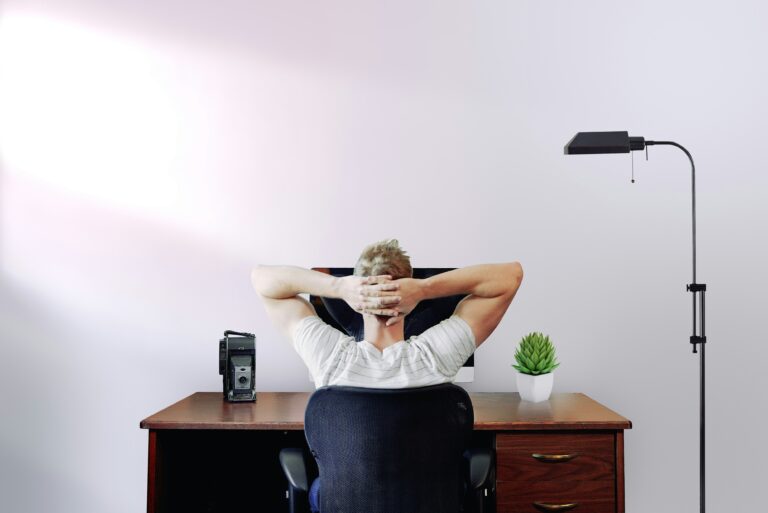Self-doubt is a common struggle many people face, but what most don’t realize is that it often becomes an unconscious habit. It sneaks in subtly, influencing our decisions, actions, and mindset without us even realizing it. If left unchecked, self-doubt can undermine your confidence, productivity, and potential. In this blog, we’ll explore how self-doubt forms, why it becomes an automatic habit, and most importantly, how you can break free and regain your confidence.
How Self-Doubt Develops Unconsciously
Self-doubt doesn’t show up overnight—it builds gradually. What starts as a simple question or fleeting thought like “Am I good enough?” can eventually snowball into a constant voice of insecurity in your head. But how does this happen? Let’s break it down:
1. The Seed of Self-Doubt: A Simple Thought
Self-doubt often begins with a single thought or question, such as “Am I capable of handling this?” Initially, this may just feel like normal uncertainty, especially when facing a challenge or new opportunity. However, if you don’t actively challenge the thought, it can become the default way you approach future situations. These thoughts may not seem harmful at first, but they start building a foundation for doubt.
2. The Power of Repetition: Self-Doubt Becomes Automatic
When self-doubt creeps in, it often goes unchallenged. You may think to yourself, “I’m not sure I can do this,” or “I don’t think I’m the right person for this role.” These thoughts, when repeated often, become unconscious habits. Without even realizing it, you start doubting yourself regularly, and before long, self-doubt becomes part of your mindset and behavior.
3. The Fear of Failure: How It Reinforces Self-Doubt
When you experience failure or make a mistake, it’s easy to let self-doubt creep in. You may think, “I knew I wasn’t cut out for this,” or “I’ve messed up again.” This negative reinforcement strengthens the cycle of doubt. The more you associate failure with your self-worth, the more deeply ingrained the habit of self-doubt becomes.
4. Comparison: How Social Media Fuels Self-Doubt
In today’s world, constant comparison is a huge driver of self-doubt. With social media platforms, we are constantly exposed to curated versions of other people’s lives, often leading to the feeling that we are “falling short.” Comparing yourself to others can quickly spiral into a habit of doubting your own abilities.
5. The Feedback Loop: How Self-Doubt Becomes Self-Sabotage
Self-doubt doesn’t just affect your thinking; it also impacts your behavior. When you doubt yourself, you may avoid taking risks or hesitate to take action. This results in fewer opportunities, which in turn reinforces your doubts. The more you avoid challenges, the more you feed your self-doubt. This creates a negative feedback loop that’s hard to break.
How to Break the Unconscious Habit of Self-Doubt
Now that we understand how self-doubt becomes an unconscious habit, let’s explore practical steps you can take to break free from it.
1. Recognize and Acknowledge Your Doubts
The first step in overcoming self-doubt is awareness. Start by recognizing when self-doubt arises. Acknowledge it without judgment, and remind yourself that doubts are just thoughts—not facts. The more you can detach from your doubts, the easier it becomes to overcome them.
2. Challenge Negative Thoughts
When you hear the voice of self-doubt, challenge it. Ask yourself: Is this thought true? What evidence do I have that contradicts this belief? By questioning your doubts, you can begin to replace them with more constructive and realistic thoughts.
3. Embrace Small Risks and Celebrate Wins
The key to building confidence is action. Take small risks, even if they feel uncomfortable at first. Every time you step outside of your comfort zone and succeed, you weaken the power of self-doubt. Don’t forget to celebrate even the small wins—they add up over time.
4. Stop Comparing Yourself to Others
Comparison is one of the most damaging habits that feeds self-doubt. Rather than comparing yourself to others, focus on your own growth and progress. Everyone’s journey is different, and you are exactly where you need to be. Celebrate your unique path and achievements.
5. Practice Self-Compassion
One of the most powerful tools for overcoming self-doubt is self-compassion. Be kind to yourself when doubts arise. Understand that everyone experiences doubt at times, and that doesn’t make you any less capable. Treat yourself the way you would treat a close friend who is struggling with self-doubt.
6. Seek Support
Sometimes, overcoming self-doubt is difficult to do alone. Seeking support from a mentor, coach, or therapist can be incredibly helpful. Talking about your doubts and fears with someone you trust can offer new perspectives and help you rebuild your confidence.
Self-doubt is a natural part of the human experience, but when left unchecked, it becomes an unconscious habit that can hold you back from achieving your true potential.
By recognizing how self-doubt develops and taking active steps to break free from it, you can build a mindset of self-confidence, resilience, and success. It’s time to stop doubting yourself and start believing in your abilities.
If you need personalized guidance, reach out for coaching support. Together, we can unlock your potential and build your confident self.
You’ve got this!


